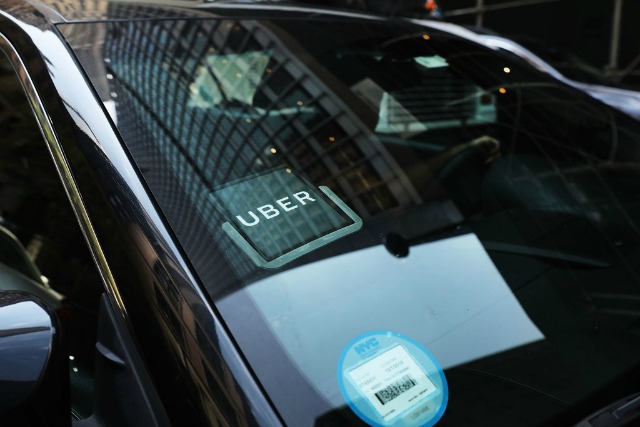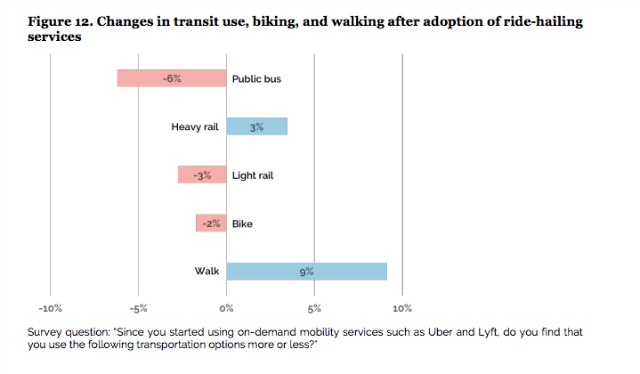CTA Ridership Is Taking A Hit Thanks To Uber & Lyft
By Stephen Gossett in News on Oct 18, 2017 10:19PM

Getty Images / Photo: Spencer Platt
Call it the Uber effect: Those who do change how they use public transit after they try ride-sharing services use buses and subways less. That was the case at least in terms of those who participated a new study, by the University of California at Davis' Institute of Transportation.
The report considered seven major U.S. metros, including Chicago. Respondents in the study told researchers that they generally didn't change how they used transit after they started using services like Lyft and Uber. But those who did alter their behavior did so at the expense of public transportation.
Six percent of people said they use public buses less and 3 percent told researchers they use light rail less since beginning to use apps like Uber and Lyft.
"When asked explicitly why one might substitute ride-hailing for public transit, the most popular response of all ride-hailing respondents was that 'services are too slow,'" according to the study.
There was a negative impact on biking habits, too. Two percent who changed their habits said they biked less after they started using ride-share. One positive finding: nine percent said they now walk more to commute.

University of California-Davis
The CTA did not immediately return a request for comment, but a spokesperson told the Tribune that, along with historically inexpensive gas prices, the use of apps like Uber and Lyft is one factor in declining ridership.
Ridership across the total transit system had fallen 4.3 percent, according to a May CTA report, the transit agency's most recent report.
At the same time, services like Lyft Shuttle operate similarly to an old-fashioned bus route, but with ride-share vehicles, posing potential to further alter transit users' habits.
Local transit-advocacy organization Active Transportation Alliance tweeted on Wednesday that an increase in cars on the roads "makes our streets less safe, and our city less healthy, equitable and sustainable."
Buses so much more efficient than ride-hailing. More cars makes our streets less safe, and our city less healthy, equitable, + sustainable. https://t.co/p3zvSE8cxa
— Active Trans (@activetrans) October 18, 2017
Mayor Rahm Emanuel put forth a budget proposal on Wednesday that calls for a 15-cent fee on ride-share trips next year. Funds would reportedly go toward some $16 million in helping fund CTA upgrades.
The administration claims that ride-sharing in Chicago has played a part in $40 million of lost revenue for the city. "“Whether you travel by car, train, bus, or bike, we will be the first city to tap the ride share industry to modernize our transportation system,” Emanuel said.
Other findings in the U-C Davis study include: 30 percent of adults in major cities use ride-share service; and nearly a quarter of those who do use services like Uber or Lyft do so either weekly or daily. Top reasons for going with ride-share over driving include parking and wanting to avoid driving after drinking, respondents said.